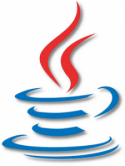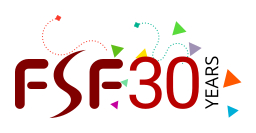It appears as if Java can be added to the list of things that Oracle spent big bucks acquiring from Sun for no apparent reason. Last Wednesday, InfoWorld’s Paul Krill wrote an article around an email the site received from “a former high-ranking Java official” who said, “Java has no interest to them anymore.”
 The article prompted JAXenter to speculate, “It’s possible that Oracle sees few other ways to make money with Java than by suing Google, who many might argue have boosted the Java community with [what] is arguably one of the biggest Java-based innovations in years — Android.”
The article prompted JAXenter to speculate, “It’s possible that Oracle sees few other ways to make money with Java than by suing Google, who many might argue have boosted the Java community with [what] is arguably one of the biggest Java-based innovations in years — Android.”
Christine Hall has been a journalist since 1971. In 2001, she began writing a weekly consumer computer column and started covering Linux and FOSS in 2002 after making the switch to GNU/Linux. Follow her on Twitter: @BrideOfLinux



 LibreOffice has won, get over it: Last week, I innocently posted
LibreOffice has won, get over it: Last week, I innocently posted 



 Speaking of things as certain as gravity…
Speaking of things as certain as gravity…

 Although some have been trying to sound the alarm, many of us have been lulled into complacency brought by a belief that Microsoft is no longer a real threat and that we are now free to concentrate all of our energies on growing Linux and FOSS, which is basically all we’ve wanted to do.
Although some have been trying to sound the alarm, many of us have been lulled into complacency brought by a belief that Microsoft is no longer a real threat and that we are now free to concentrate all of our energies on growing Linux and FOSS, which is basically all we’ve wanted to do. On Saturday the popular desktop environment GNOME turned eighteen. Always looking for an excuse for chocolate cake and ice cream, this is a birthday I celebrated, even though I’m not a user.
On Saturday the popular desktop environment GNOME turned eighteen. Always looking for an excuse for chocolate cake and ice cream, this is a birthday I celebrated, even though I’m not a user.
